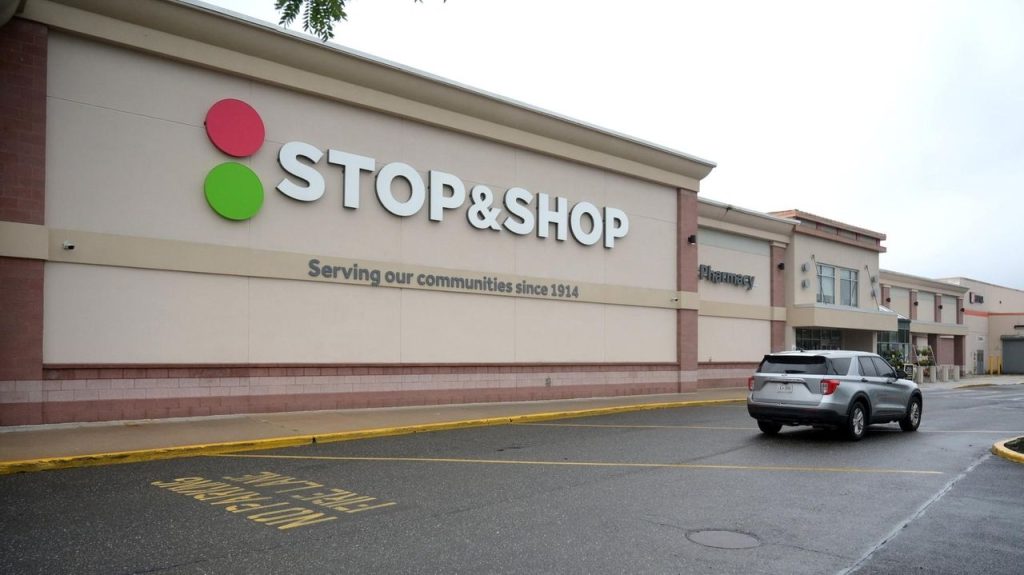Stop & Shop plans to close 32 “underperforming” supermarkets by early November, including four on Long Island, but says it will not lay off any employees.
The stores closing on Long Island are in Greenvale (130 Wheatley Plaza), Coram (294 Middle Country Rd.), Hempstead (132 Fulton Ave.) and East Meadow (2525 Hempstead Tpke).
The Quincy, Massachusetts-based retailer said the 32 stores being closed are in Connecticut, Massachusetts, New Jersey, New York and Rhode Island and are scheduled to close by November 2nd.
“As announced in May, Stop & Shop evaluated its entire store portfolio and made the difficult decision to close underperforming stores in order to create a sound foundation for the brand’s future growth,” Stop & Shop President Gordon Reed said in a statement.
Stop & Shop said no employees will be laid off as a result of the store closures.
“They will be offered the opportunity to transfer to other nearby stores,” Stop & Shop spokesman Daniel Wolk said.
Local unions said they are working to ensure Stop & Shop keeps its promise to not lose workers’ jobs.
“They’re the ones that got us through the pandemic and we want to make sure they’re still treated as essential. That’s the most important thing. What we’ve learned from COVID is how important these jobs are,” said Allie Y. Waddy, secretary-treasurer of the United Food and Commercial Workers union in Westbury.
Stop & Shop did not disclose how many employees work at the stores it is closing, but the local chapter of the union that represents all employees except store managers provided some information.
The union’s local chapter represents about 420 workers at the four Long Island stores that are closing.
- UFCW Local 1500 represents 258 employees at Stop & Shop stores in Coram, Greenvale and Hempstead who work as cashiers, stockers, and in the produce, dairy, frozen foods, bakery, bookkeeping, price integrity and maintenance departments, Waddy said.
- About 100 people who work in those positions, including in the deli department at the East Meadow store, are represented by the Retail Wholesale and Department Store Workers Union/UFCW Local 338 in Mineola, said Nikki Kateman, director of political and public affairs.
- UFCW Local 342 also represents about 60 meat, seafood and deli workers at its Coram, Greenvale and Hempstead stores, and only meat and seafood workers at its East Meadow store, said Keely Lampo, director of operations and communications for the Staten Island chapter.
With the 32 store closures, Stop & Shop will operate 359 supermarkets across five states: 81 in Connecticut, 115 in Massachusetts, 47 in New Jersey, 91 in New York and 25 in Rhode Island.
More Choices
Stop & Shop, owned by Dutch company Ahold Delhaize, is the largest grocery store on Long Island.
The company’s 50 stores on the island account for 31.6 percent of the market share, according to Food Trade News, a Columbia, Maryland-based magazine.
Stop & Shop, which dominates in New England, expanded into the Capital Region in the mid-’90s by acquiring several regional chains, said Jeff Metzger, publisher of Food Trade News.
But Stop & Shop is a traditional supermarket retailer that faces increasing competition from discount and specialty grocers, he said.
On Long Island, upscale grocer Whole Foods Market has six stores, three of which have opened since 2019. Whole Foods is set to open one store in Huntington Station on Wednesday and one in Holbrook in 2025.
German discount grocer Aldi has 13 stores on Long Island, four of which opened in the past two years, and plans to open five more locally by 2025.
Another German discount store, Lidl, currently operates 24 stores on Long Island, but in 2019 its U.S. subsidiary entered the local market when it completed the acquisition of 27 stores in New Jersey and New York (including all 24 stores on Long Island) from Bethpage-based Best Market.
“So there’s still a lot more [grocery] “We’re seeing fewer selections and overall excess inventory. We’re also seeing less shopper loyalty and more cross-shopping,” Metzger said, adding that Stop & Shop has been slow to update its stores.
According to the U.S. Department of Agriculture, none of the four Long Island communities affected by Stop & Shop’s closures are designated as areas with limited access to healthy foods at grocery stores, areas once known as “food deserts.”
Hempstead’s Stop & Shop is a 50,000-square-foot supermarket in The Hub shopping center, and while some loyal residents will be sad to see it close, Mayor Waylin Hobbs Jr. said the village is “nowhere near a food desert.”
Hobbs said an Aldi on Peninsula Boulevard and a CTown supermarket on South Franklin Street have opened in recent years, adding that Compare Foods will be part of a new retail development being built on Main Street.
“Even with all these supermarkets, we still have enough of a customer base to sustain the market here in Hempstead Village, but I don’t think the size of that Stop & Shop would have been enough to sustain the business,” Hobbs said.
“We will lose some of the convenience of being able to shop in our own community,” said a regular customer at the 66,194-square-foot store in Kollam. [other] “We want to create an environment where people can shop within five to 10 minutes of stores on the west side and east side,” said Brookhaven City Councilman Michael Logercio, who represents the 4th District.
Not content with Stop & Shop’s performance, Ahold is working on an improvement plan that includes remodeling stores and right-sizing its store portfolio. As of May, more than half of Stop & Shop’s stores had been remodeled, and “these stores are performing well,” Ahold President and CEO Frans Mueller told analysts on an earnings call May 8.
“We want to expand our market share to match Stop & Shop’s scale and we have several strategies to achieve this, including private label brands, combined with price competitiveness and loyalty promotions,” he said.


